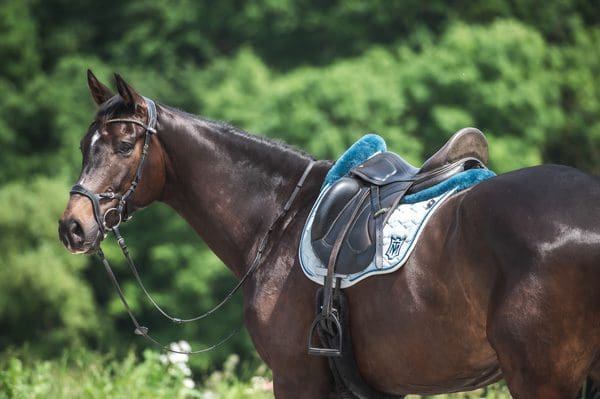
How to Get a Horse to Lose Weight Safely and Effectively?
Share
As a health-conscious pet owner, managing your horse's weight is crucial for their overall well-being. Horses that are overweight can suffer from various health issues, including metabolic disorders and joint problems. In this article, we will discuss how to get a horse to lose weight and adopt a healthy lifestyle that can benefit both you and your equine friend.
Weight management in horses involves a combination of diet, exercise, and monitoring. Its essential to maintain a balanced approach to ensure that your horse is not only losing weight but also remaining healthy and energetic.

Understanding Equine Weight Management
Before implementing a weight loss program for your horse, its important to understand the fundamentals of equine nutrition and energy balance. Horses, like humans, gain and lose weight based on their caloric intake versus expenditure. Here are a few critical points to consider:
- Caloric Needs: Horses have different caloric needs based on their age, size, and activity level.
- Body Condition Scoring (BCS): Learn how to assess your horse's body condition score to determine an appropriate weight loss plan.
- Dietary Changes: Adjusting your horse's diet can significantly influence weight loss.
Calculating Caloric Needs
To calculate your horse's daily caloric needs, consider their weight, work level, and any additional factors like pregnancy or aging. The average maintenance requirement is around 1.5-2% of their body weight in forage per day. For example, a 1,000-pound horse typically needs 15-20 pounds of hay daily.
Monitoring the amount of food and making adjustments as needed can help ensure that your horse is on the right track for losing weight. Remember, its not just about cutting calories; its about providing a balanced diet.
Dietary Changes for Weight Loss
When looking to get a horse to lose weight, consider the following dietary adjustments:
- Reduce Grain Intake: Grains are often high in calories and should be limited. Switch to low-calorie feed options that are still rich in necessary nutrients.
- Increase Forage: Providing adequate hay allows horses to have a continuous intake of fiber, which promotes healthy digestion while still allowing weight loss.
- Measure Feed: Use a scale to measure your horse's food intake, ensuring theyre getting the right amount for their weight-loss goals.
For a more detailed guide, you can learn about making healthy treats for your horse that are low in sugar and calories.
Exercise: The Key to Weight Loss
Equine exercise is essential for maintaining a healthy weight. Here are some tips for increasing your horses activity levels safely:
- Regular Riding: Implement a consistent riding schedule that incorporates both aerobic and strength-building exercises.
- Variety in Activities: Engage your horse in various activities such as trail riding, lunging, or even obstacle courses to keep it interesting.
- Increase Turnout Time: Allowing your horse more time outside to roam freely can help them expend additional energy.
Remember also to consider your horse's individual personality when planning exercise routines. Some horses thrive on structured workouts while others prefer leisurely movement.
Monitoring and Adjusting Plans
Regular monitoring is vital. Heres how to keep track of your horses progress:
- Weight Checks: Weigh your horse weekly to assess weight loss and adjust the diet or exercise plan accordingly.
- Body Condition Score (BCS): Score your horse regularly to visually monitor their fat cover.
- Veterinary Check-ups: Regular visits to the vet can provide valuable insights into your horses health and well-being during the weight loss process.
Additional Considerations
In addition to diet and exercise, other factors can impact your horse's ability to lose weight:
- Stress Levels: Horses may gain weight due to stress. Ensure your horse is in a calm environment.
- Proper Tack: Ensure your horse is using suitable tack that is not restricting movement during exercise. Visit this informative site to learn more about proper horse tack.
- Monitor Health Issues: Some health issues can lead to weight gain or hinder weight loss. Consultation with a vet is important here.

FAQs
What is the best diet plan for an overweight horse?
The best diet for an overweight horse includes high-fiber, low-calorie forage, a decrease in grain or high-starch feeds, and regular access to fresh water.
How much exercise should my horse get to lose weight?
Horses should ideally have at least 30 minutes of moderate exercise 4-5 times a week to aid in weight loss, along with regular turnout.
How do I know if my horse is losing weight safely?
Monitor your horses body condition score and weight weekly. A gradual weight loss of about 1-2% of their body weight per week is safe.
As an Amazon Associate, I earn from qualifying purchases.
